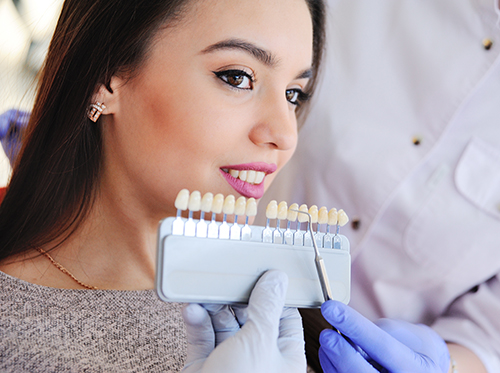Oral Cancer Awareness Month
April 3rd, 2018

Happy Oral Cancer Awareness Month! We know oral cancer can be kind of a scary topic, but it’s worth using this opportunity to learn about the disease and spread knowledge so everyone becomes more aware. The more we know, the better we can work to prevent it!
Oral cancer is exactly what it sounds like: cancer that occurs anywhere in the mouth. It could occur on the tongue, the lips, the gums, the tongue, inside the cheek, or in the roof or floor of the mouth. Every year, more than 8,000 people die from oral cancer. It’s a truly deadly disease.
The reason oral cancer scores a higher death rate than other common cancers such as testicular cancer, Hodgkin’s disease, thyroid cancer, cervical cancer, or even skin cancer, is because it often goes undetected until it's become too advanced and has spread to another part of the body.
So what causes this devastating disease? There is no clear answer, but some potential causes have been identified. By being aware of these, we can be alert and promote prevention of this illness:
- Age: Most patients who develop oral cancer are above the age of 40. If you’re over 40, make sure your doctor checks for signs of oral cancer and that you stay on your dental hygiene regimen.
- Tobacco: Excessive tobacco use, whether in the form of cigarette smoking or tobacco chewing, can be a substantial contributor and cause of oral cancer. So that’s another reason, among many, you should avoid tobacco.
- Alcohol: Excessive alcohol consumption can put you at risk because alcohol converts into a chemical called acetaldehyde, which damages the body’s DNA and blocks cells from repairing the damage. When paired with tobacco, the dehydrating effects of alcohol make it even easier for tobacco to infiltrate mouth tissue.
- Sun exposure: Your lips need SPF, too! Repeated sun exposure increases your risk of contracting cancer on your lips, especially the lower lip.
- Diet: Not getting all the nutrients you need, from vegetables and fruits for instance, can weaken your immune system and make you more vulnerable to the disease.
Obviously, many of these causes relate to lifestyle choices, which we have control over. It's all about balance, being aware, and making small tweaks to our habits if we need to.
If you’re concerned that you may be at risk for oral cancer, give us a call to talk about a screening. And if you’ve been putting off a visit to our Dartmouth, MA office, now is an excellent time to schedule one. Regular visits to the dentist can be the first line of defense against oral cancer!





 Website Powered by Sesame 24-7™
Website Powered by Sesame 24-7™